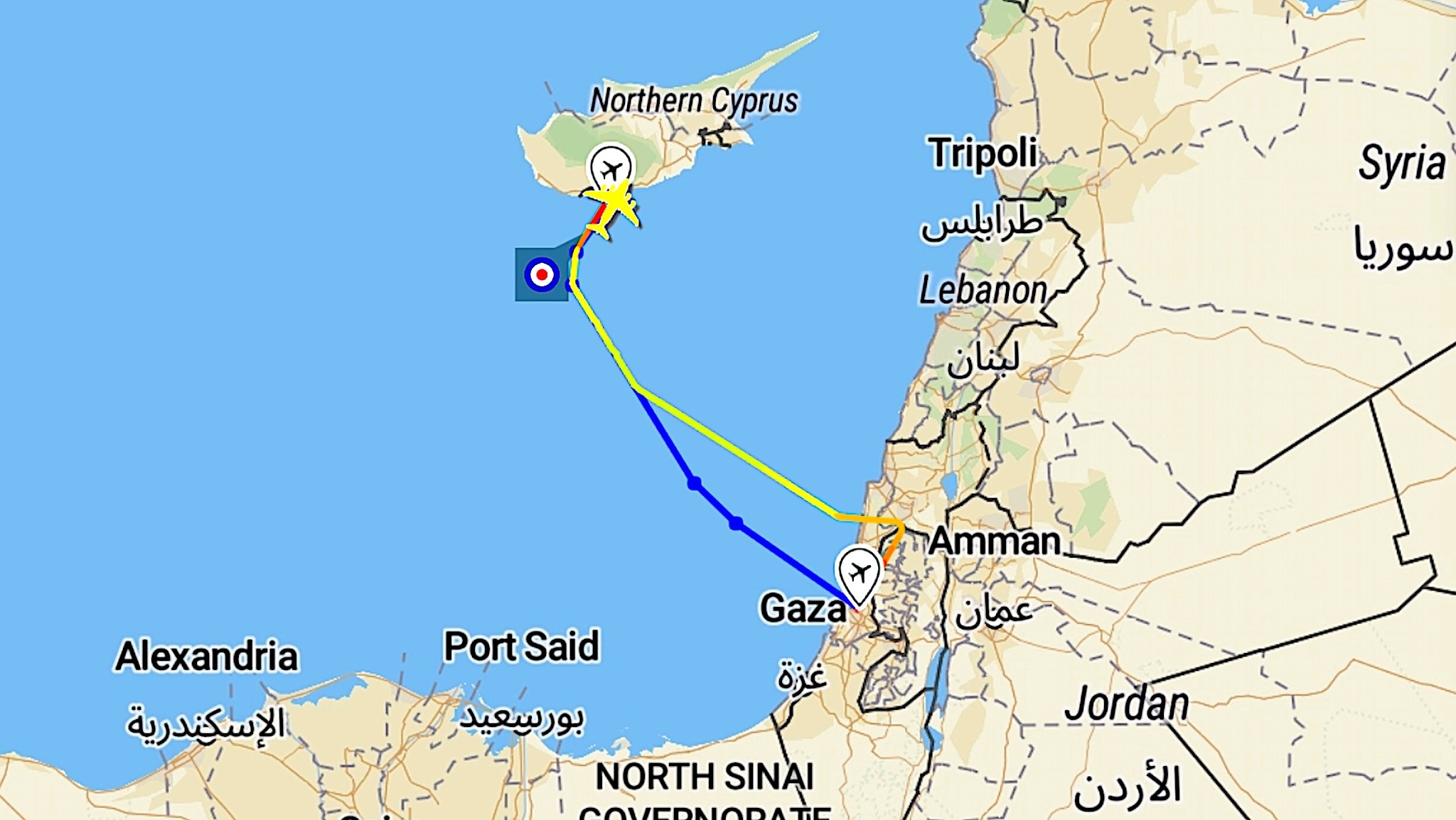A former British army brigadier with extensive front line experience has expressed concern at Israel’s military offensive in Gaza.
John Deverell CBE, who worked in Palestine’s West Bank on projects designed to improve local counter terrorist capability, warned that Israel is likely to be taking “completely inadequate” steps to protect civilians.
Deverell told Declassified that “air and artillery strikes on Gaza” by the Israel Defence Force (IDF) could be judged as “fundamentally indiscriminate”.
His criticism comes as more than 11,000 Palestinians have reportedly been killed by Israel’s retaliatory strikes on Gaza since October 7, when Hamas gunmen killed around 1,200 Israelis and took over 200 hostage.
Thousands of Palestinian children have died in the subsequent airstrikes and shelling of densely populated parts of Gaza, which have seen refugee camps and hospitals struck repeatedly.
Deverell warned: “It seems that efforts that the IDF claims are being made to minimise civilian casualties might well be completely inadequate. In a military world where very precise munitions are available, I would think that the use of relatively ‘dumb’ missiles, bombs and artillery shells that cause the loss of innocent lives at scale may no longer be legally acceptable.”
Deverell also stated: “In any event, many years on operations round the world taught me that victory depends on rather more than mere military force. There has to be an acceptable and enduring political ingredient for the Gazans – which, thus far, is absent from Israeli government strategy.”
The IDF acknowledges that Palestinian civilians have died in its offensive, but claims Hamas operatives were the intended targets and blames the militant group for using “human shields”.

Many commentators believe the extent of civilian casualties in Gaza puts the IDF in breach of international law.
The UN, Human Rights Watch, Amnesty International and Red Cross have all highlighted cases over the last month where Israel may have committed war crimes in Gaza.
UN general secretary Antonio Guterres said last week: “Ground operations by the Israel Defense Forces and continued bombardment are hitting civilians, hospitals, refugee camps, mosques, churches and UN facilities – including shelters.”
Guterres added: “I am deeply concerned about clear violations of international humanitarian law that we are witnessing…Gaza is becoming a graveyard for children.”
These warnings have led some to remind the UK Foreign Office of its legal obligations when granting export licences for arms sales to Israel.
Relevant is a paper that Brigadier Deverell – former Director Defence Diplomacy in the MOD and veteran of the Middle East where he served for over a decade – was commissioned to write for Oxfam.
In the paper, Deverell sets out steps ministers should take to ensure they do not grant a licence “if there is a clear risk that the items might be used in the commission of a serious violation of international humanitarian law.”
The paper, distributed to No. 10 as well as to the head of the UK’s armed forces and senior officials in the Foreign Office, stresses the importance of recipient states respecting no-strike lists of “locations and objects that must not be attacked” such as hospitals.
Deverell has separately suggested that Whitehall officials should “take a view on the application of indirect and direct fire in and onto Gaza through the prism of the paper’s recommendations”.
The UK has approved the export of weapons to Israel worth at least £146m in the last five years, but Campaign Against Arms Trade (CAAT) believes the total value is much higher.
The group said British industry “provides 15% of the components for the F35 stealth combat aircraft that Israel is currently using in the bombardment of Gaza,” in a contract worth hundreds of millions of pounds alone.
Flashback to 2014
This is not the first time that concerns have emerged about arming the IDF.
During Israel’s bombardment of Gaza in 2014, Declassified understands that Britain’s business secretary, Sir Vince Cable, wanted to suspend arms exports to the IDF.
Cable received backing from officials in his department and deputy prime minister Nick Clegg.
However, Conservative ministers in David Cameron’s coalition government disagreed, and ultimately only 12 licences were temporarily suspended.
These covered components for tanks, combat aircraft, targeting equipment, military radars and munition launching equipment, which were thought to be directly relevant to the IDF operation.
The internal wrangling took so long that the bombardment had stopped by the time a decision was taken. Foreign minister Sayeeda Warsi resigned in protest over the government’s inaction.
Today, it seems unlikely that any licences for Israel will be suspended. Prime minister Rishi Sunak has expressed total support for Tel Aviv.
His former home secretary, Suella Braverman, branded hundreds of thousands of pro-Palestinian demonstrators who walked through London on Saturday as “hate marchers”.
Meanwhile, James Cleverly is understood to have recently held a rare all staff meeting at the Foreign Office, in an apparent move to head off leaks.
Diplomatic staff are said to be afraid of making critical comments even among like-minded colleagues.
Revisiting Deverell’s paper, written from the stance of a former senior MOD official, could make some in Whitehall think twice – not least since ignoring the paper’s recommendations could have legal liability implications.
Posture not policy
Other former officials have also expressed concern at UK policy towards Israel.
These include retired ambassador to Iran, Sir Richard Dalton, who was once Britain’s consul-general in Jerusalem.
He told Times Radio: “I find the British government’s knee-jerk endorsement of everything that Israel does obscene and a departure from previous stances in which we have sought some fairness in these dreadful situations”.
Dalton said the IDF “pay very little attention…to civilian casualties” and he “cannot see” how Israel’s blockade of Gaza “is consistent with any laws of war”.
Dalton said the IDF “pay very little attention…to civilian casualties”
He added: “Clearly what Hamas has done was an obscene terrorist atrocity but Israel should not be committing war crimes in response,” insisting the IDF’s actions were “not proportionate”.
John Casson, former UK ambassador to Egypt and foreign policy adviser to David Cameron, also expressed scepticism of Sunak’s stance on Gaza.
Casson told BBC Radio 4: “Britain has stood beside Israel as close as any major power…[but] stand with Israel is a posture, it’s not a policy”.
He added: “Given the chilling loss of civilian life, thousands of innocent lives every week, we have a responsibility to set out a description of the exit from the cycle of violence…There is no solely military solution.”
“If Israelis are never again going to have to face the kind of barbaric things that happened on the 7th of October, it also needs to be a never again moment where we say never again will we leave Palestinians under occupation without any credible hopeful future.”
He warned that the UK was “very isolated from the climate of global opinion” when it came to the conflict in Gaza.




